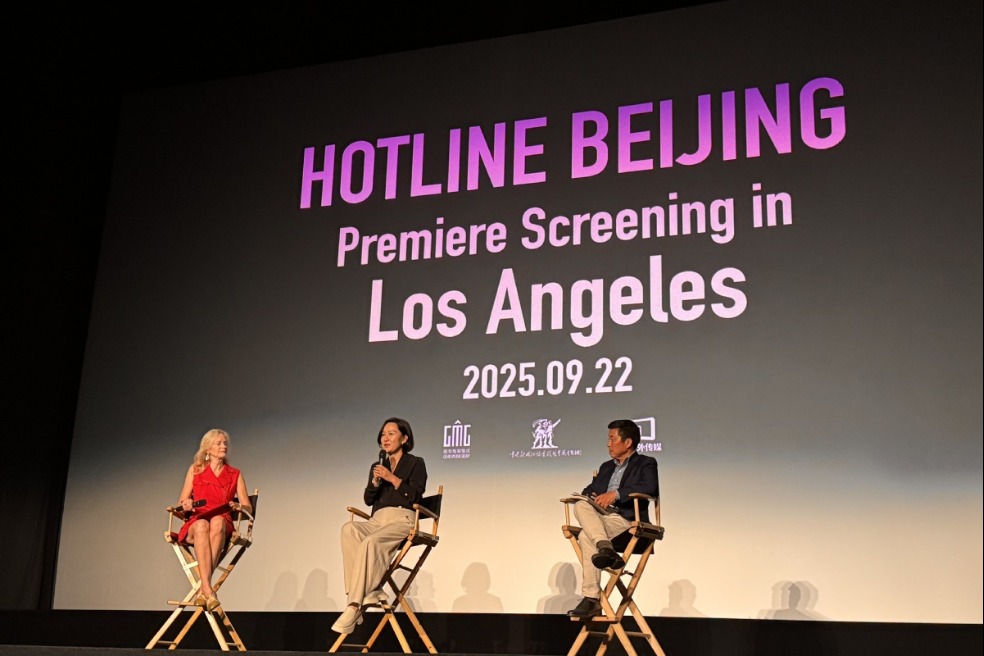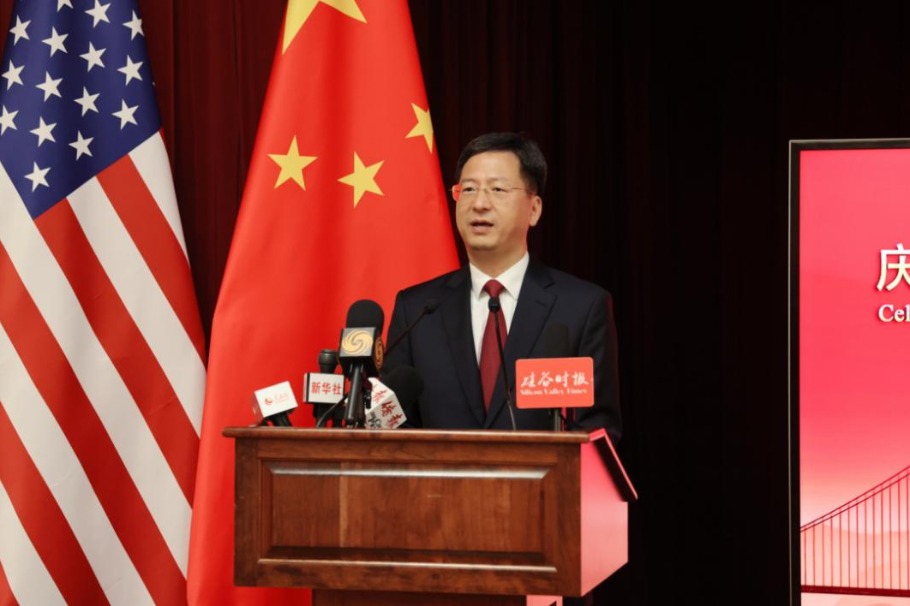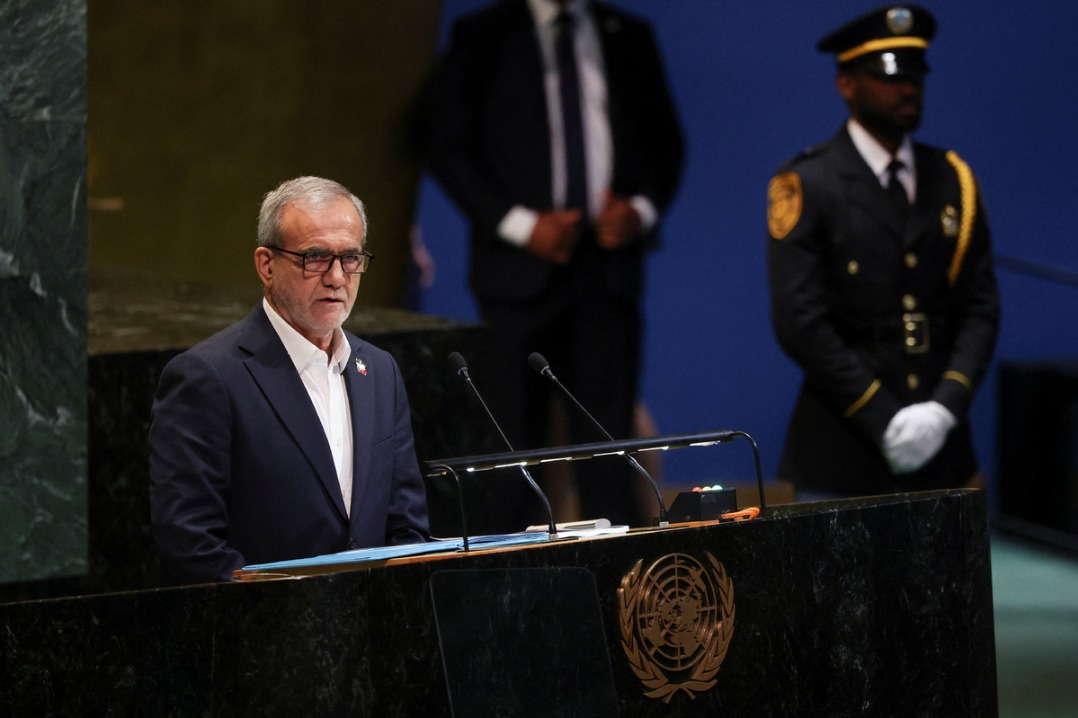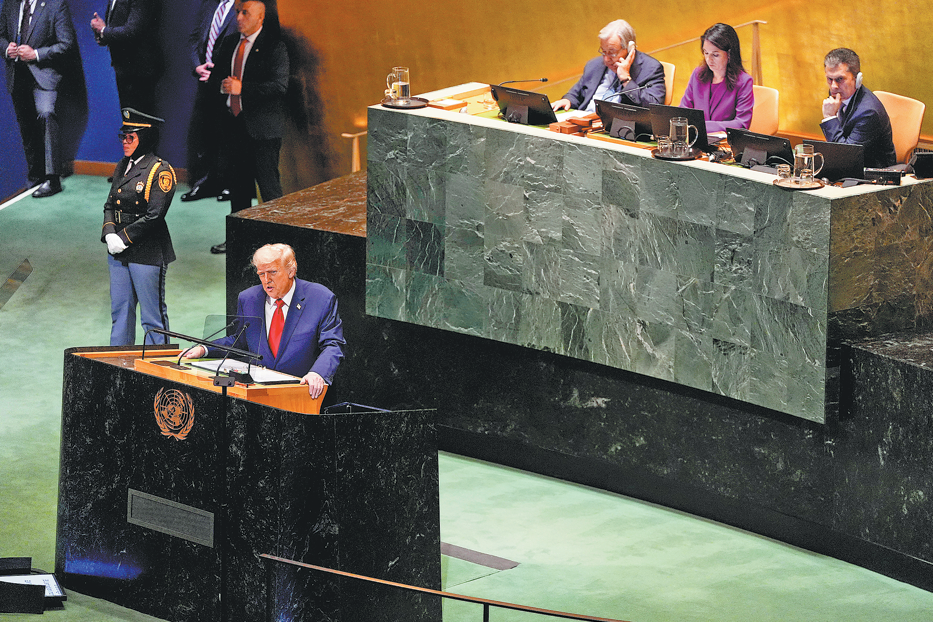Iran 'never sought' nuclear bomb
President said Teheran promotes efforts to establish peace and security


Iranian President Masoud Pezeshkian on Wednesday reiterated that Iran has "never sought and will never seek to build a nuclear bomb" as the country is facing "snapback" sanctions on its nuclear program.
Speaking at the 80th session of the United Nations General Assembly, Pezeshkian said that Iran does not seek nuclear weapons.
"This is our belief based on the edict issued by the Supreme Leader and by religious authorities. Therefore, we never sought weapons of mass destruction, nor will we ever seek them," he said.
His remarks came after the United States in June carried out attacks on three nuclear sites in Iran: Fordow, Natanz and Esfahan.
Pezeshkian said the strikes, launched "at a time when we were treading the path of diplomatic negotiations," constituted "a grave betrayal of diplomacy and a subversion of efforts towards the establishment of stability and peace."
He warned that "should we fail to confront such perilous breaches of international norms, these aberrations shall spread to engulf the world."
He also said Britain, France and Germany, the three European signatories to the 2015 Iran nuclear deal, had no legal basis for trying to reimpose UN sanctions on Iran.
The three countries, known as the E3, invoked the deal's "snapback" provision on Aug 28 by notifying the Security Council that Teheran was failing to comply with its commitments.
The snapback mechanism allows UN sanctions to be reimposed within 30 days if Iran is deemed in breach of the 2015 nuclear accord, formally known as the Joint Comprehensive Plan of Action (JCPOA). The sanctions are expected to take effect on Sept 27.
"Last week, three European states, having failed through a decade of bad faith and thereafter by supporting military aggression, to bring the proud people of Iran to their knees, at the behest of the United States of America, sought by means of pressure, coercion, imposition and manifest abuse to reinstate against Iran the Security Council resolutions that had already been terminated," Pezeshkian said.
"All of this was in pursuit of nothing less than the destruction of the very JCPOA which they themselves had once held as the foremost achievement of multilateral diplomacy," he added.
China and Russia are circulating a draft resolution at the Security Council seeking a technical extension of Resolution 2231, which endorsed the JCPOA and outlined the process for lifting UN sanctions.
Last Friday, Iran's Foreign Minister Seyed Abbas Araghchi said in a phone call with International Atomic Energy Agency chief Rafael Grossi that Teheran would not accept "political action and unfair pressure" over its nuclear program, state news agency IRNA reported.
Araghchi warned that such moves could escalate tensions. He said Iran has consistently pursued diplomacy and technical cooperation.
The Iranian president also condemned the aggression of Israel against Qatar.
"True security is not achieved through force but through confidence building, mutual respect, regional convergence and multilateralism grounded in international laws," Pezeshkian said.

































